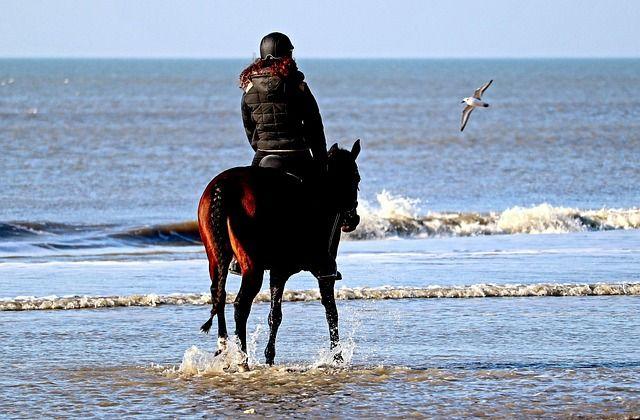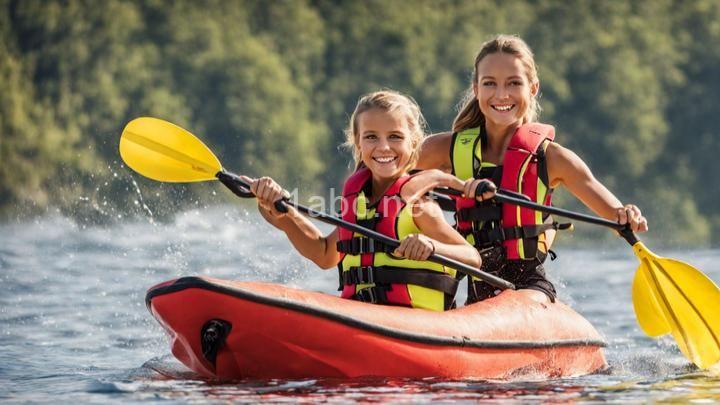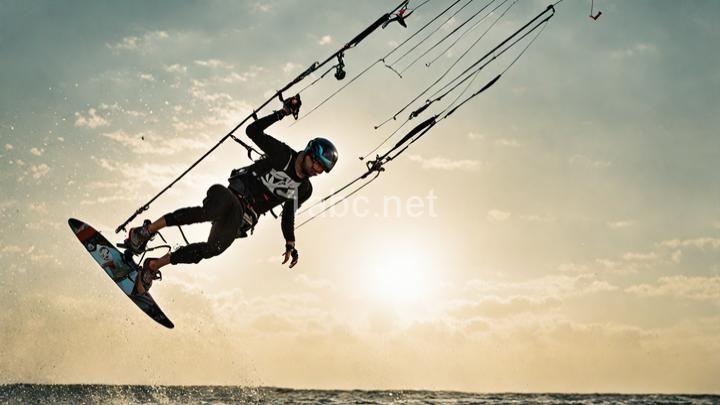Safety First: Tips for Staying Safe and Enjoying Water Sports as a Beginner

Introduction:
Welcome, water sports enthusiasts! Are you ready to dive into the exhilarating world of water sports? Whether you're a thrill-seeker or simply looking to enjoy some fun in the sun, water sports offer an incredible opportunity to connect with nature and experience an adrenaline rush like no other. But before you jump in headfirst, it's essential to prioritize safety. In this blog post, we'll explore some tips and tricks to help you stay safe while enjoying water sports as a beginner. So, let's make a splash and dive right in!
I. Choosing the Right Activity:
When it comes to water sports, there's a wide array of options available for beginners. From kayaking and paddleboarding to surfing and snorkeling, the choices can be overwhelming. The key is to select an activity that matches your interests and skill level. Consider what type of experience you're looking for. Are you seeking a calm and peaceful adventure or an adrenaline-pumping thrill ride? Start with something manageable and gradually progress as you gain confidence and experience.
II. Essential Safety Gear:
Safety should always be a top priority, and that starts with wearing the right gear. No matter which water sport you choose, there are some essential items you should always have on hand. Life jackets are a must-have, as they can potentially save your life in an emergency. Helmets are crucial for activities like kayaking and rafting, where head injuries are a risk. Additionally, wetsuits can provide insulation and protection from cold water. It's important to invest in reliable gear that fits properly and meets safety standards. There are numerous reputable brands and online retailers where you can find quality gear within your budget.
III. Understanding Water Conditions:
Water conditions can play a significant role in your safety while participating in water sports. Factors such as tides, currents, and weather conditions can greatly impact your experience. It's crucial to understand these conditions before plunging into any activity. Check local forecasts and be aware of any advisories or warnings. Seek advice from local experts or consider taking lessons from qualified instructors who can teach you how to navigate different water conditions safely. Remember, knowledge is power, and being well-informed will help ensure a safe and enjoyable experience.
IV. Learning Proper Techniques:
Just like any other sport, learning proper techniques is essential for water sports. Each activity has its own set of techniques that must be mastered to ensure safety and maximize enjoyment. Don't be afraid to seek guidance from professionals. Joining beginner-friendly classes or hiring qualified instructors can provide you with the necessary skills and knowledge to participate safely in your chosen water sport. Learning the correct techniques from the start will not only minimize the risk of injuries but also enhance your overall experience.
V. Buddy System & Communication:
Water sports are always more enjoyable when shared with others. As a beginner, it's crucial to never venture out alone. Always have a buddy or join a group for added safety. Buddies can look out for each other, offer support, and provide assistance if needed. Effective communication is key while on the water. Establishing clear communication methods, such as hand signals or whistles, can help ensure smooth coordination with your buddies or other participants. Remember, teamwork makes the dream work!
VI. Checking Local Regulations & Rules:
Just as with any outdoor activity, it's essential to understand and follow local regulations and rules when it comes to water sports. Different areas may have specific rules and restrictions, such as designated water sport areas, speed limits, and right-of-way rules. Familiarize yourself with these regulations to ensure you're staying within the law and maintaining the safety of yourself and others. These rules are in place to protect both you and the environment, so it's crucial to be a responsible and conscientious water sports enthusiast.
Conclusion:
Congratulations, water sports enthusiasts! You're now equipped with valuable tips and knowledge to ensure your safety while enjoying water sports as a beginner. Remember, safety should always be your top priority. By choosing the right activity, wearing appropriate safety gear, understanding water conditions, learning proper techniques, utilizing the buddy system, and following local regulations, you can have a fantastic and safe water sports experience. So, go out there, have fun, and make some unforgettable memories. Stay safe and keep making waves!
FREQUENTLY ASKED QUESTIONS
What are some essential safety tips for beginners in water sports?
When it comes to water sports, safety should always be a top priority, especially for beginners. Here are some essential safety tips to keep in mind:
-
Wear a life jacket: Regardless of your swimming ability, always wear a properly fitting life jacket when participating in water sports. It can save your life in case of an accident or if you become tired in the water.
-
Know your limits: It's important to be aware of your own abilities and limitations when engaging in water sports. Start with activities that match your skill level and gradually progress as you gain more experience and confidence.
-
Check the weather conditions: Before heading out, check the weather forecast and ensure that the conditions are suitable for your chosen water sport. Avoid going into the water during storms or when there are strong currents or high winds.
-
Learn proper techniques: Take the time to learn and practice the correct techniques for your chosen water sport. This will not only improve your performance but also reduce the risk of injuries.
-
Buddy system: Whenever possible, engage in water sports with a buddy or in a group. Having someone with you can provide assistance in case of an emergency and make the experience more enjoyable.
-
Stay hydrated: Remember to drink plenty of water before, during, and after your water sports activity. Dehydration can lead to fatigue and increase the risk of accidents.
-
Be mindful of your surroundings: Pay attention to the environment around you. Look out for any obstacles, other watercraft, or wildlife that may pose a danger. Stay away from areas with strong currents, submerged rocks, or dangerous marine life.
-
Follow safety regulations: Familiarize yourself with the specific safety regulations and guidelines for your chosen water sport. These rules are in place to protect you and others, so be sure to adhere to them.
-
Carry a communication device: It's a good idea to have a communication device, such as a waterproof phone case or a whistle, with you in case you need to signal for help.
-
Take lessons: If you're new to water sports, consider taking lessons from a certified instructor. They can teach you the proper techniques, safety protocols, and give you valuable tips to enhance your skills.
Remember, water sports can be exciting and fun, but it's essential to prioritize safety at all times. By following these tips, you can enjoy your water sports adventure while minimizing the risks involved.
How can I choose the right equipment for water sports?
Choosing the right equipment for water sports can greatly enhance your experience and ensure your safety. Here are some tips to help you make the right choice:
-
Research: Start by researching the different types of water sports equipment available. This will give you a better understanding of what is suitable for your specific activity.
-
Consider your skill level: Determine your skill level in the water sport you plan to engage in. Beginners may need different equipment compared to more advanced participants.
-
Consult with experts: Seek advice from experienced water sports enthusiasts or professionals who can guide you in selecting the appropriate equipment based on your needs and abilities.
-
Try before you buy: Whenever possible, try out different equipment before making a purchase. This will allow you to assess comfort, fit, and functionality.
-
Quality and durability: Invest in high-quality equipment that is designed to withstand the demands of water sports. Look for reputable brands and read customer reviews to ensure you are getting a reliable product.
-
Safety features: Prioritize safety by choosing equipment that has appropriate safety features, such as buoyancy aids or helmets. Your safety should always be a top priority.
-
Budget: Set a budget for your water sports equipment and stick to it. While it's important to invest in quality gear, there are options available for every budget.
-
Maintenance: Consider the maintenance requirements of the equipment you choose. Some water sports gear may require regular cleaning, storage, or servicing.
Remember, choosing the right equipment is essential for an enjoyable and safe water sports experience. Take your time, do your research, and consult with experts to make informed decisions that suit your needs and preferences.
What should I do if I find myself in an emergency situation while participating in water sports?
If you find yourself in an emergency situation while participating in water sports, it is important to stay calm and take immediate action. Here are some steps you can follow to ensure your safety:
-
Assess the situation: Take a moment to evaluate the severity of the emergency. Is it a minor issue that you can handle on your own, or do you need professional help?
-
Signal for assistance: If you require help, try to attract the attention of nearby individuals or boats. Wave your arms, shout for help, or use any available signaling devices.
-
Stay afloat: If you are in the water, try to stay afloat by treading water or using a flotation device. This will conserve your energy and help you stay visible to rescuers.
-
Call for help: If you have a waterproof or water-resistant device, such as a phone or radio, use it to call for assistance. Inform the appropriate authorities or your emergency contacts about your situation and location.
-
Follow safety protocols: If you are with a group or participating in organized water sports, follow any safety protocols or emergency procedures that have been established. This may involve staying with your group, using designated emergency signals, or following specific rescue techniques.
-
Seek shelter: If possible, seek shelter or a safe area while waiting for help to arrive. This could be a nearby boat, a buoy, or a shoreline. Protect yourself from further danger, such as strong currents or hazardous objects in the water.
-
Stay positive and reassured: It can be easy to panic in emergency situations, but try to remain positive and reassured. Remember that help is on the way, and focus on taking the necessary steps to ensure your safety.
Remember, prevention is always better than dealing with an emergency. Before participating in water sports, make sure you are familiar with the safety guidelines, wear appropriate gear, and inform someone about your plans. Stay safe and enjoy your water sports adventures responsibly!
How can I improve my swimming skills before engaging in water sports?
To improve your swimming skills before engaging in water sports, there are a few things you can try. First and foremost, practice is key! Spending more time in the water will help you build confidence and improve your technique.One way to enhance your swimming skills is by taking swimming lessons. An experienced instructor can provide guidance and teach you proper form and techniques. They can also offer personalized feedback to help you improve specific areas of your swimming.
Additionally, incorporating specific drills into your practice routine can be beneficial. For example, practicing different strokes such as freestyle, backstroke, breaststroke, and butterfly can help you become more proficient in each of them. You can also work on your breathing technique to ensure you have good endurance in the water.
Another aspect to focus on is strength and conditioning. Engaging in exercises that target your core, upper body, and legs will not only improve your overall fitness but also enhance your swimming performance. Incorporating exercises like planks, push-ups, squats, and lunges into your workout routine can make a noticeable difference.
Lastly, don't forget to have fun! Enjoying the water and being open to trying new things will make your swimming practice more enjoyable and motivating. Remember, progress takes time, so be patient with yourself and celebrate even small improvements along the way.
By dedicating time to practice, taking lessons, incorporating drills, focusing on strength and conditioning, and maintaining a positive mindset, you will be well on your way to improving your swimming skills for water sports. Good luck and have a splashing time!

